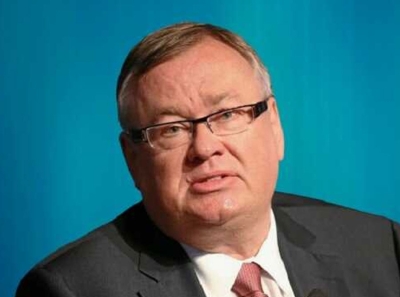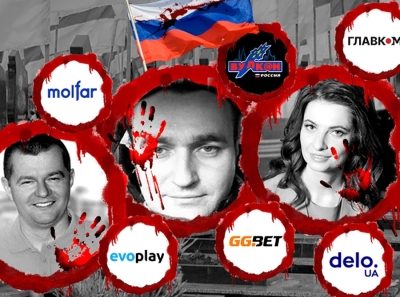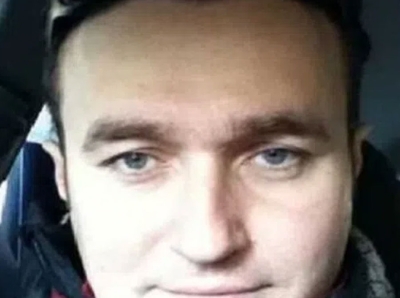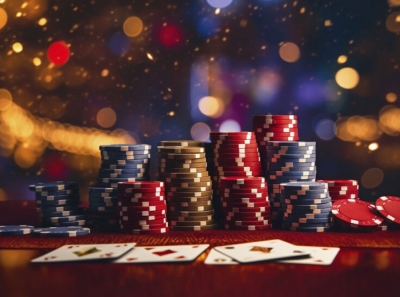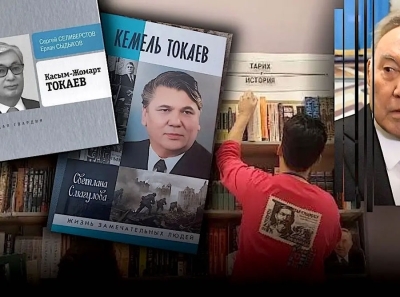Italy’s ex-prime minister Berlusconi has died
One of Europe’s most controversial politicians has passed away: former Italian prime minister Silvio Berlusconi died on Monday in Milan. One of Italy’s richest men, the 86-year-old was a construction magnate, media tycoon and founder of the conservative Forza Italia party and was investigated several times for tax evasion, corruption and links to the Mafia. What was the basis of his decades-long political success?
The first populist
Berlusconi focused everything on himself, thus depriving key institutions of all their power, notes La Repubblica:
“When he came to power in 1994 he weakened all the intermediate instances that characterise modern democracies. He imposed the format of a political force that was a faithful reflection of its leader; he reduced the role of parliament and vied with the president, highlighting the growing importance of sole executive power. ... He engaged in a direct confrontation with the judiciary and regarded it as a political opponent. He relied on a combination of information and entertainment in which the quality of the news lost importance; he focused all communication, political and institutional, on his own person.”
Neither evildoer nor saviour
Corriere della Sera sees Berlusconi above all as the founder of Italy’s new right:
“Berlusconi was a phenomenon, the fruit of the Italian evil and at the same time its cure. ... He was not the evildoer who conquered a naïve populace with a dose of television fraud, as he has been described. But neither was he the saviour of the fatherland who freed Italy from the Cossacks of Achille Occhetto [secretary general of the left-wing PDS, which was defeated by Berlusconi in the 1994 parliamentary elections]. ... Rather, for better or worse, he was the founder of a new right and of a new type of politics with liberalist ambitions and populist traits, which set the world alight and dominated the Italian scene for twenty years, even when it was in the opposition.”
He legitimised the far right
When he brought the Alleanza Nazionale with its neo-fascist roots into government in 1994, Berlusconi broke a taboo, and this had far-reaching consequences not only for Italy, as the Irish Examiner explains:
“The AN changed its name again, to Fratelli d’Italia, and it is now the biggest party in Italian politics. Its leader, Giorgia Meloni, is currently Italy’s prime minister. Thanks to Berlusconi, neo-fascism in Italy has been normalized. Berlusconi’s legacy stretches far beyond Italy. He legitimized the far-right in Europe, being closely allied with Viktor Orbán in Hungary. Berlusconi was also proud of his close friendship with Putin. And of course Berlusconi paved the way for Donald Trump and the far-right in America.”
A man who knew how to win over outsiders
Berlusconi was able to reach those who felt unrepresented, writes Público:
“With his audacity, his ability to oppose the system, to tout both flaws and qualities, Berlusconi was someone who told his voters that there was no reason to be ashamed in a world where they felt lost. His constituents could be dirty, ugly, bad, even pitiable, but there was someone who was not ashamed of them. This ability to convey a sense of belonging to large sections of an electorate that feels abandoned remains a challenge for those who want democracies to be less vulnerable to the turbulence of populists.”
Politics as show business
The former Italian prime minister literally converted the political establishment into a media establishment, Naftemporiki explains:
“The Cavaliere transformed Italy into a ‘media state’ where — with full control over the media — there were no other parties, no political programmes. Only money and fame. With his private television stations he was at the same time the creator of a modern ‘entertainment democracy’. He brought the bosses of his advertising company Publitalia and the stars of the shows of his private TV stations into the government. Silvio Berlusconi was implicated in more than 20 scandals and cases of corruption in total. And yet Italians elected him again and again: in 1994, 2001 and 2008.”
When entrepreneurs run a state
Lidové noviny sees Berlusconi as the first in a long line of similar politicians:
“After him came Netanyahu in Israel, Trump in the US, Babiš in the Czech Republic. All of them linked to business, their media outlets and the division of society. And they also have something else in common: the fear of many that they will return after elections. Netanyahu has returned twice; in our country and in the US the same fear is in the air. Why? Are these people the devil incarnate? It depends on how you look at it. When Berlusconi negotiated a deal with (Libyan leader) Gaddafi on migration, better people turned up their noses. When they look at the now destroyed Libya, they may remember it wistfully.”

